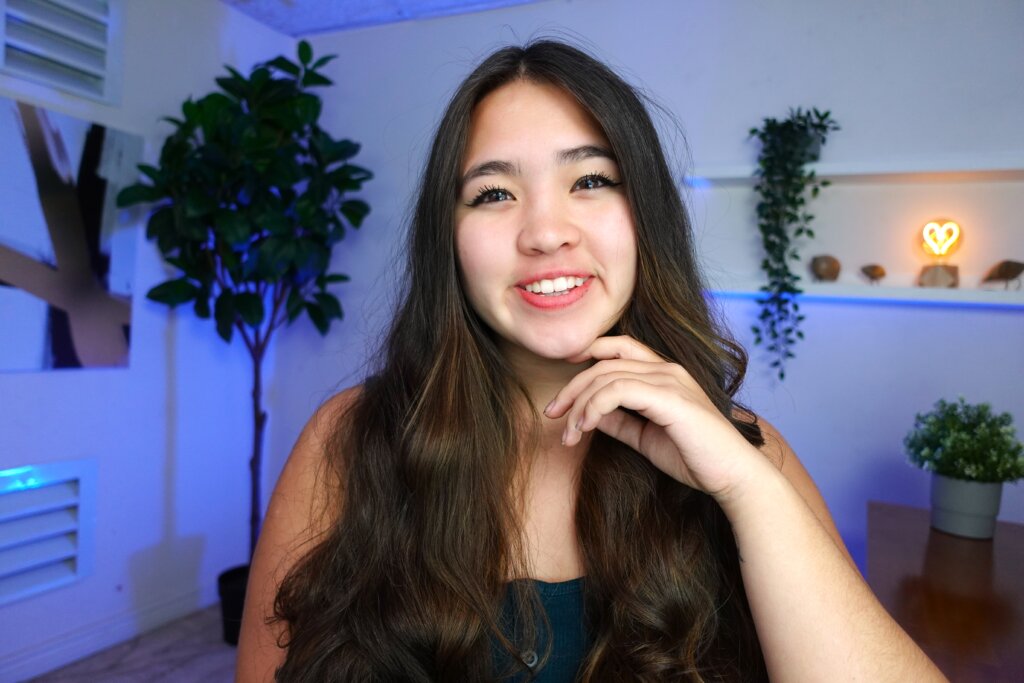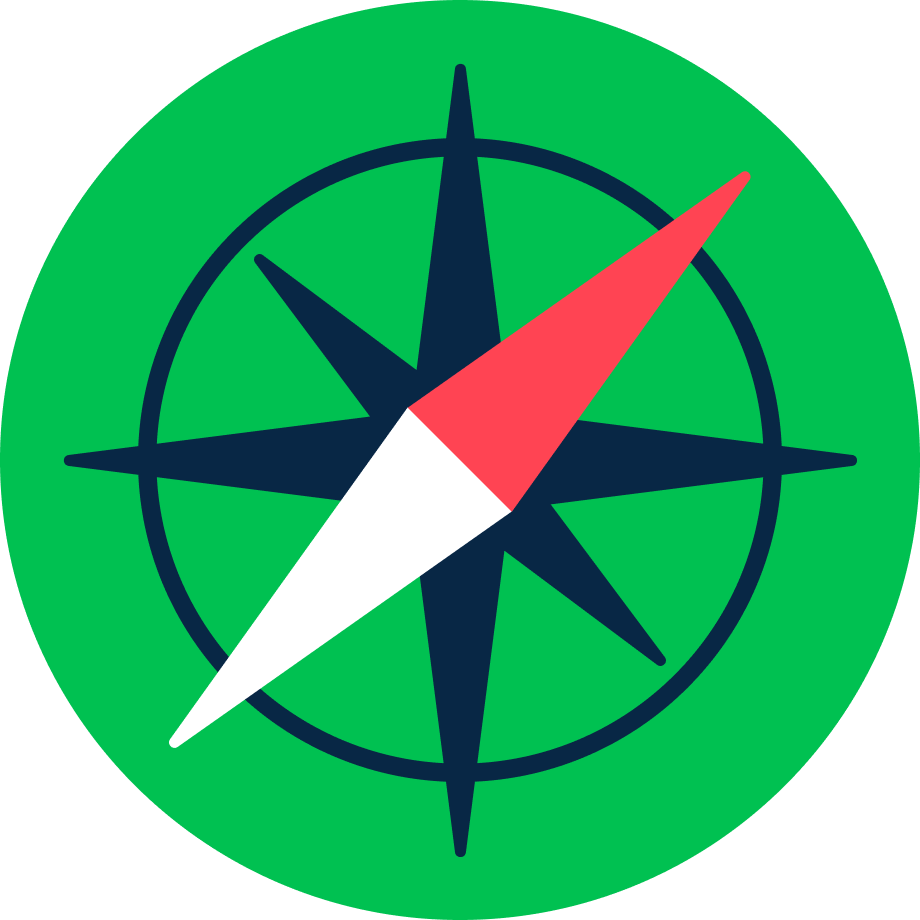Hundreds of hours of research and 73 pages of notes—that’s what it took for Aprilynne Alter to multiply her subscriber count by 12 times in 30 days!
By the time you finish reading this post, you’ll know how she did it, too. More importantly, you’ll have actionable steps that you can use to boost your subscribers and grow your channel on YouTube.

There’s a Lot of Competition on YouTube—Is It Worth It?
To understand this in context, let’s look at some facts first. YouTube is the world’s second-largest search engine. It’s also the top streaming platform. Hundreds of millions of creators jump onto the YouTube bandwagon yearly—but only a tiny percentage succeed.
Is it worth investing the time to become a better YouTube Creator?
Absolutely—and the numbers confirm my thinking, too. YouTube’s 4.95 billion monthly active users eclipses Netflix’s 40 million. And according to SocialBlade, YouTube has over 61 million creators. The platform has one of the best creator programs in the world, and it has a growing collection of high-quality, free resources. If you put in the time and energy, I believe YouTube can open up incredible opportunities for you and your business.
As a YouTube Creator, I always leap at the opportunity to learn from others in this space. In the past, we’ve gained wisdom on The Smart Passive Income Podcast from more prominent YouTube creators like MKBHD and Sean Cannell. But this time, I wanted to speak to an up-and-rising YouTube creator. We liked what Aprilynne was doing with her YouTube channel, so we invited her to the show.
Listen to Aprilynne on The Smart Passive Income Podcast:
12x YouTube Subscriber Growth in Four Weeks
Aprilynne grew her YouTube channel from 1,000 to over 12,000 subscribers in four straight weeks.
And yep—those are real numbers. As I write this post, I see that her channel has over 52,047 subscribers. But that’s not why I’m sharing Aprilynne’s lessons with you. Here’s why I think her approach is worth examining:
Like most internet-based platforms or social media, YouTube is rapidly evolving too. And that’s why Aprilynne’s learnings are very relevant—because everything you’re about to learn is based on what she discovered by doing in the last six months.
Adding tens of thousands of new subscribers to a brand-new YouTube channel isn’t easy. Aprilynne doesn’t have a background in media or video either—in fact, she previously quit a career in finance! She also had a challenging experience with her first YouTube channel.
She’s also achieved this without creating too many videos—her channel has just twenty-four videos as I write this. It’s evident that Aprilynne’s success comes from careful research—she’s been studying the best YouTube creators. Take a closer look, and you’ll see the results of her study: four out of the twenty-four videos have over 200K views. And one of the four videos has over 800K views!
So, what did Aprilynne do differently with her second YouTube channel?
When I spoke to her on the podcast, it all started to come together. So, without further ado, let’s get into Aprilynne’s four-step process for YouTube subscriber growth. Implementing these four steps will definitely help you grow your YouTube channel fast. So get ready to take notes because this one is super actionable!

Ready to learn YouTube the smart way?
The All-Access Pass community has the courses (like YouTube From Scratch!), resources, support, and accountability you need.
Aprilynne’s Four-step Process for YouTube Subscriber Growth
What you’re about to learn is simple to understand, but it can be hard to implement if you miss the details, so pay close attention. Here are Aprilynne’s four steps:
- Start with the Packaging
- Focus on the Intro
- Pay Attention to Your ENTIRE Audience
- Preplan Like a Boss
These steps may appear self-explanatory, but let me walk you through each one of them step-by-step.
1. Start with the Packaging
“If you think about what goes into the success of a video, it’s around 50 percent the packaging,” says Aprilynne.
Packaging is about the three critical elements of a YouTube video:
- Idea
- Title
- Thumbnail
Aprilynne realized she spent 99 percent of the time creating the video and just one percent on the packaging. I like the word packaging because it is something we experience every time we buy physical products at a store—packaging is what you see before you experience a product.
It’s the same with videos, too—people experience the above three elements before they watch the actual video. And if they aren’t clicking on your video, then the video might as well not even exist.
Start with the idea—what do you want to communicate to your audience? How would you describe your video in one line?
Once you’ve nailed your packaging, it’s time to move on to step number two.
2. Focus on the Intro
Aprilynne spoke about this on the show, but I learned everything else from this step in this video on her channel. Here are four specific tips from Aprilynne on this:
2.1. Focus on the First Five Seconds
The first five seconds play a massive role in deciding the success of your video. That’s because YouTube looks for a match between your packaging and what you say in the first five seconds. For example, if your video is about “how to create killer thumbnails,” make it clear in the first five seconds.
Second, it also helps the viewer decide whether to continue watching. Promising “killer thumbnails” and discussing your new backyard vegetable garden in the first five seconds is not a good idea.
2.2. Keep the Intro Length Short
The intro is the time you spend at the beginning of the video, including the first five seconds. Keep the intro to anywhere from ten to about forty-five seconds—not more than a minute.
2.3. Nail the Setup
“Setup” refers to three essential elements: curiosity gap, context, and input bias. Here’s what you want to do to nail your setup:
- Create a curiosity gap: In simple words, give your viewers enough to want more. This topic deserves an entire post, but here’s a great post from Descript.
- Establish context: Tell your viewers what the context is. If your title includes “killer thumbnails,” tell them if they are thumbnails for YouTube videos or podcasts in Apple Podcasts.
- Input bias: This is based on human behavioral psychology. It refers to the idea that the more time, effort, and money you spend on something, the more you’ll value it. In the context of this post, one way of doing this is to tell your viewers how much effort you put into researching the stuff they are about to learn. If you want to dig deeper, read this great HubSpot article about how MrBeast uses input bias in his videos.
2.4. Front-load the Stimulus
Keep changing the visuals fast in the first few twenty-odd seconds. According to Aprilynne, MrBeast changes visuals at the beginning of his videos every 1.4 seconds. Mark Rober does it every 1.6 seconds.
3. Pay Attention to Your ENTIRE Audience
This post is about growing your YouTube subscribers. Everything I’m sharing in this article is based on what Aprilynne uses to create what she calls “banger videos.”
These videos help you reach new audiences, and they do that without ignoring your audience—casual and core viewers included.
In other words, make your videos appealing to your subscribers, but don’t ignore folks who aren’t subscribed. Design your videos also to pull in casual YouTube viewers who don’t (yet) know who you are.
4. Preplan Like a Boss
Most folks script and then shoot. There are two problems with this.
First, this can put a lot of pressure on the editing process. You might realize while editing that you needed product footage or a second camera angle.
Second, the jump from scripting to filming can clip your creativity. In other words, you may now stick to the script and ignore other perspectives.
That’s why Aprilynne annotates her videos after scripting. She lays it all out before the camera starts to roll, mapping every scene, every shot. Here’s how she breaks it down:
“I used to film everything and then edit. Now, I script it, go through it line by line, and annotate what I want on screen. So I separate it into talking head footage, B roll that I film, screen shares, and visuals I make. And so I plan all of that out beforehand. It makes filming a lot easier because I know for my talking head portion, which [lines] I need to say to the camera, what I can just read—which is a lot easier.”
Go Deeper with YouTube
If you want to start a YouTube channel, my YouTube From Scratch course—which I created with my friend and videographer Caleb Wojcik—is the perfect place to start. Two of my YouTube channels have collectively clocked over 200 million views and over a million subscribers—I put everything I learned from growing these two channels into the course.
YouTube From Scratch—and our entire course library—are exclusively available in the All-Access Pass and Pro communities. My team and I created them to help you find like-minded creators and establish accountability on your entrepreneurial journey. It’s the best way to grow as an entrepreneur online, so check it out today!
